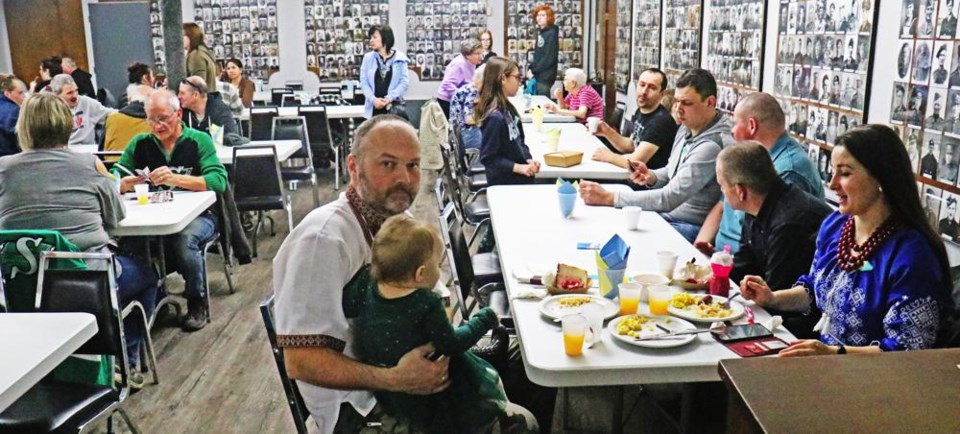WEYBURN – The work of the Canadian Foodgrains Bank in reaching people who are hungry, including people fleeing the invasion of Ukraine by Russia, was detailed to the members of the Weyburn Rotary Club on Thursday.
Rick Block, a regional representative of the Foodgrains Bank, spoke to the club via Zoom, and explained the various ways the organization will help people out.
He noted that the Foodgrains Bank is a partnership of 15 church agencies from 30 denominations, as they work together to provide food or resources in areas of need around the world.
The organization provides emergency food assistance in times of crisis, but they also provide long-term responses that can help people with sustainable food sources over a period of time.
Last year, the Canadian Foodgrains Bank provided about $50 million in funding in 33 countries, noted Block.
Showing a graph of hunger around the world in the last several years, he noted that food aid agencies and groups were making progress until about 2014, and in the last five or six years hunger has again begun to increase in the world.
The causes range from armed conflict (such as currently in Ukraine), natural disasters, and food system failures, such as occurred during the COVID pandemic.
The CFB works where there are disasters, with hunger and suffering, and their response is in conjunction with local residents, churches and agencies.
Currently with the conflict in Ukraine, the foodgrains bank is working with agencies that are already in place along the Polish-Ukrainian border, such as the Canadian Baptist Ministry and the Mennonite Central Committee (MCC).
They have been providing food, humanitarian supplies and medical assistance to refugees who are escaping out of Ukraine from the Russian invasion.
“At times we can also provide food vouchers to refugees who are stuck in a spot and have little or no resources,” said Block. “In some ways it’s very basic, but it does require coordination. The resources are helping people to get through to the next day or the day after.”
Block explained the various sources of funding for their work. These include $25 million in core funding from Global Affairs Canada, for international humanitarian assistance, along with about $15 million in donations from the public, and $14 million over five years from Global Affairs Canada.
The government will match funds on a 4:1 ratio if the funds are used for emergency assistance, such as for refugees in Ukraine, which makes a $1 donation into $5.
As Block explained, “The matching isn’t when the dollars come in, it’s when the dollars go out for projects.”
If the dollars going out are for conservation or agricultural projects to help people over the long term, then the ratio is 3:1, which turns $1 into $4, he noted.
Recently an appeal for emergency aid to Ukraine had just closed, he said, and he wasn’t sure exactly why or whether it would reopen, but it may have been subject to availability of supplies.
“We want to be open and very grateful for the generosity of Canadians,” he added.
The CFB also works with local organizations when they do projects, such as in recent years working with a group in the Oungre area, where the seed and inputs were donated, along with the time to harvest it, and the proceeds from the crops when they were delivered to the terminal were then donated to the Foodgrains Bank.
Last year, over 220 projects raised over $6 million, with 34 of these projects in Saskatchewan, he noted.
The Canadian Foodgrains Bank also does advocacy with federal politicians, and will make an e-postcard available to supporters to send to their MPs in Ottawa to advocate for continued support of food aid work.
After the presentation, the Weyburn Rotary Club voted to confirm a notice of motion to donate $1,000 to the Foodgrains Bank, to specifically help the refugees from Ukraine, and this was passed by all who were in attendance in person and by Zoom.





